A new hive home for Michigan bee research
[ad_1]
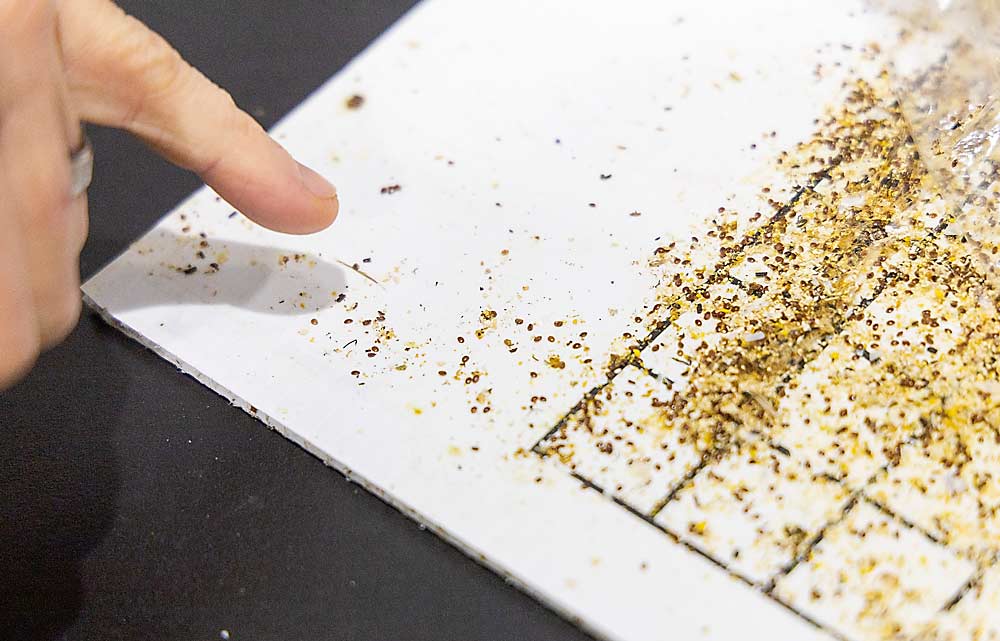
This year, Michigan State University consolidated much of its pollinator research, education and outreach activities into a new facility, the Pollinator Performance Center, and hired a full-time manager, Dan Wyns, to run its daily operations.
MSU designed the new center to be a research and teaching facility, purpose-built for honey bees. It provides an infrastructure for MSU personnel and their varied studies of bee behavior, including how that behavior affects different crops and industries, Wyns said.
“This positions us well, going forward, for our primary goals of supporting research and extension activities,” he said.
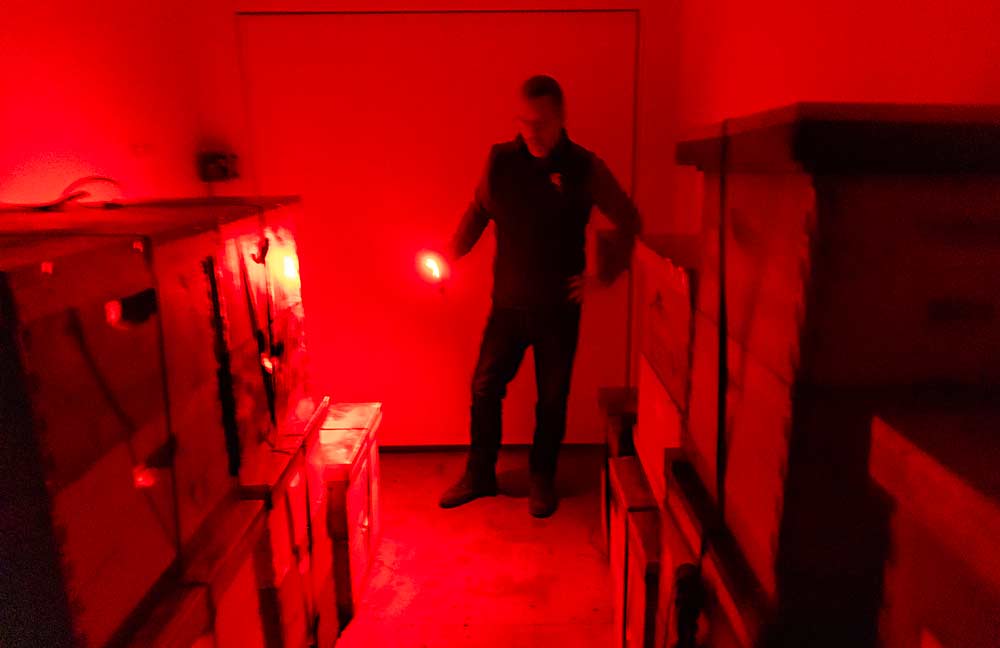
The Pollinator Performance Center, located in a university farm building on the south side of MSU’s main campus in East Lansing, is a partnership among MSU’s department of entomology, AgBioResearch and MSU Extension.
The building, formerly used for indoor animal air quality research, has been extensively renovated in the past three years, with guidance from Wyns, who was an academic specialist for honey bee colony health and management in the MSU department of entomology before becoming manager of the pollinator center.
It includes space for research labs, offices, bee and honey storage, a modern honey house and a honey extraction facility. The site can host field days and groups of beekeepers for instructional activities using on-site hives. Eventually, Wyns would like to add more honey bee colonies and develop a breeding program so researchers can have a larger pool of bees to access.
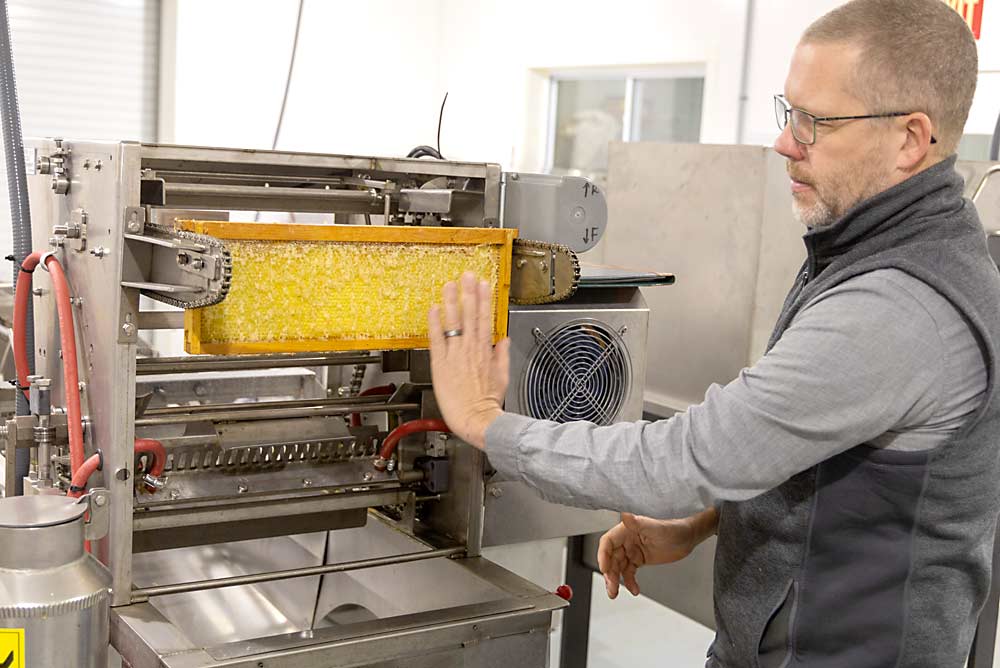
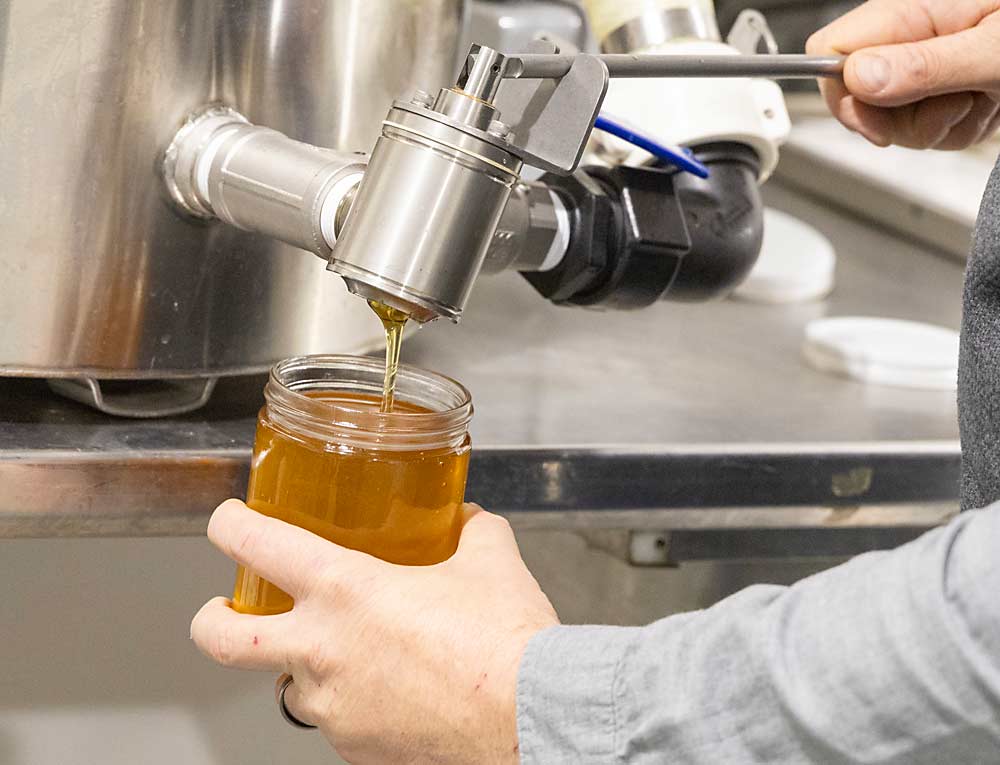
Wyns has a long background in the pollination industry. After graduating from the University of Michigan with a bachelor’s degree in natural resource management and a graduate certificate in spatial data analysis, he worked as a beekeeper, apiary inspector and operator at pollination service providers in New Zealand and Canada. In 2014, he became a faculty research assistant at Oregon State University, where he also worked as a field specialist with the Bee Informed Partnership, a nonprofit that seeks to improve honey bee health. He joined MSU in 2017.
Wyns and his wife also own a small beekeeping operation.
“He’s a proven expert in the industry, and the experience he’s had at MSU — along with the valuable relationships he’s built inside and outside the university — are critical to maintain MSU’s status as a premier pollinator research hub,” MSU AgBioResearch assistant director James Averill said in a statement announcing the pollinator center.
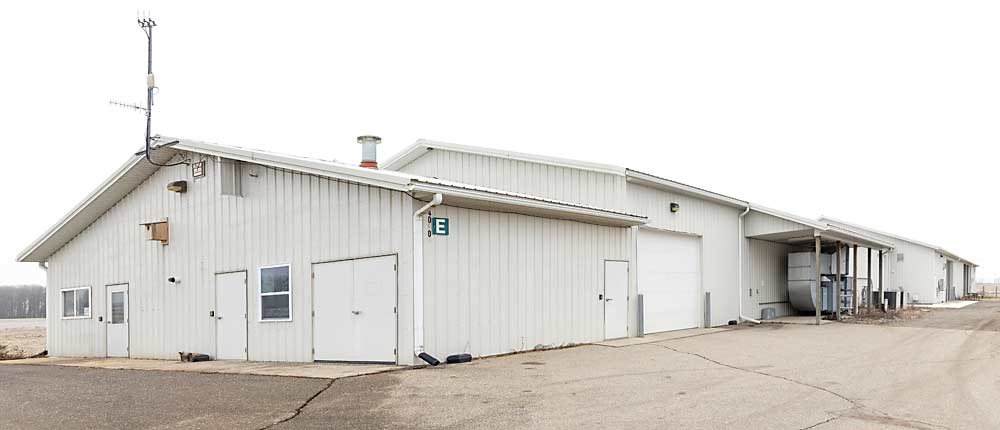
Wyns said researchers will study all aspects of bee health, diseases, parasites and pests at the new center, which is capable of all aspects of harvesting, extracting, processing and packing honey.
The pollinator center will facilitate MSU’s work with industry partners, including growers and commercial beekeepers. For example, Wyns has been working with researchers from MSU’s Isaacs Lab on a blueberry research project that’s revising pollination best-practices and studying colony stocking density and placement within blueberry farms.
“The center increases the capacity of what we can do and gives us more opportunities to support these industries,” he said.
—by Matt Milkovich

















